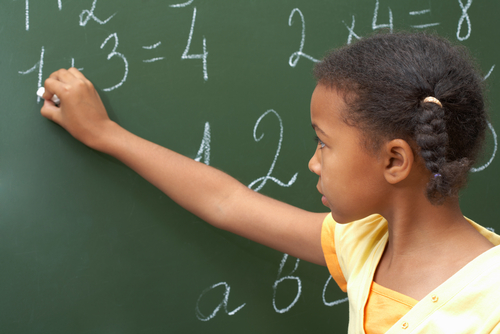 We all have our strengths and weaknesses when it comes to learning abilities just as it is with other aspects of our lives. Our learning styles also vary accordingly. Some of us are visual learners while some others may thrive better with verbal learning approach and some others may require a multi-sensory approach to learning. In addition, our interests in particular subject areas also vary as this often influences class placement in schools as well as eventual career choices.
We all have our strengths and weaknesses when it comes to learning abilities just as it is with other aspects of our lives. Our learning styles also vary accordingly. Some of us are visual learners while some others may thrive better with verbal learning approach and some others may require a multi-sensory approach to learning. In addition, our interests in particular subject areas also vary as this often influences class placement in schools as well as eventual career choices.
Let’s go down memory lane for a while….
Try to remember how best you learned back in school,
Were you the kind of student that would rather seek visual aids such as pictures or charts in order to comprehend whatever information the teacher presented?
Or could you handle grasping the ideas from the verbal/theoretical methods of teaching?
Also, did you constantly require repetition in order to understand the information provided by your teachers?
And did you find that your teacher’s teaching style was not suitable to your learning style?
Most learners have different experiences and often develop strategies to “cope” with their learning challenges. However, individuals with learning difficulties may seem to be unable to cope with the challenges of learning as they may constantly feel weird as a result of their learning difficulty.
Let’s identify some common learning difficulties and their peculiarities
 Dyslexia: is a brain related disorder that affects how the brain processes written and spoken language. Individuals with dyslexia have difficulties, decoding words, reading, spelling and comprehension of written words/sentences. They may often seem to reverse letters/words or miss out/misplace words when writing. Dyslexia has nothing to do with poor intelligence, poor vision or laziness, it is simply as a result of how the brain is wired and how it processes such information.
Dyslexia: is a brain related disorder that affects how the brain processes written and spoken language. Individuals with dyslexia have difficulties, decoding words, reading, spelling and comprehension of written words/sentences. They may often seem to reverse letters/words or miss out/misplace words when writing. Dyslexia has nothing to do with poor intelligence, poor vision or laziness, it is simply as a result of how the brain is wired and how it processes such information.  Dyscalculia: is a brain based disorder that affects how the brain processes math concepts. Individuals with dyscalculia present with varying levels of difficulty ranging from comprehending numeric concepts such as number sequence to the application of numeric operations such as addition, subtraction, multiplication & division.
Dyscalculia: is a brain based disorder that affects how the brain processes math concepts. Individuals with dyscalculia present with varying levels of difficulty ranging from comprehending numeric concepts such as number sequence to the application of numeric operations such as addition, subtraction, multiplication & division.
- Dysgraphia: simply means impaired writing. It is a brain related disorder that
involves difficulties with handwriting such that writings are illegible, pencil/pen grip is poor, letter/words spacing is disorganized and written
expression is problematic.
 Auditory Processing Disorder (APD): this has to do with difficulty “comprehending” auditory information such as sounds or spoken words. This often affects how well an individual is able to understand verbal instructions/directions and affects the ability to cope with noise.
Auditory Processing Disorder (APD): this has to do with difficulty “comprehending” auditory information such as sounds or spoken words. This often affects how well an individual is able to understand verbal instructions/directions and affects the ability to cope with noise.
As previously stated, getting a professional diagnosis of a learning difficulty is key to knowing the necessary steps in interventions to take in order to improve the learning capabilities of such learners.
Innovative approaches in the field of Neuropsychology & Educational Psychology towards improving cognitive functioning of individuals with learning difficulties have proven to be efficient. For more information about these approaches, kindly visit: www.mobilehealthconsult.org
Remember to follow me on twitter @DrMorayoJimoh for more interesting updates on
#Learning Difficulties.